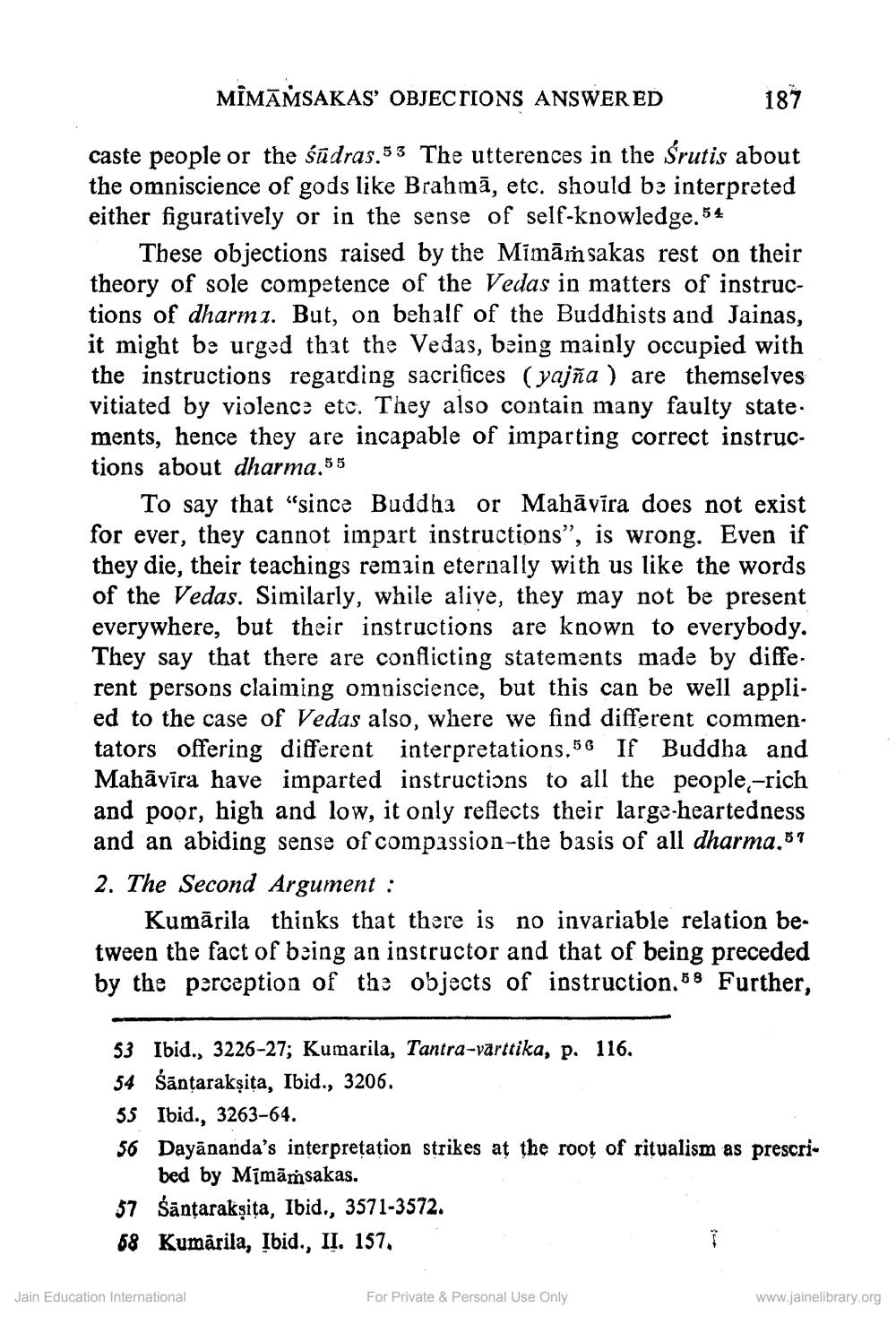________________
MÌMĀNSAKAS' OBJECTIONS ANSWERED
187
caste people or the sūdras.53 The utterences in the Śrutis about the omniscience of gods like Brahmā, etc. should be interpreted either figuratively or in the sense of self-knowledge. 54
These objections raised by the Mimāṁsakas rest on their theory of sole competence of the Vedas in matters of instructions of dharmı. But, on behalf of the Buddhists and Jainas, it might be urged that the Vedas, being mainly occupied with the instructions regarding sacrifices (yajña ) are themselves vitiated by violence etc. They also contain many faulty state. ments, hence they are incapable of imparting correct instructions about dharma.55
To say that “since Buddha or Mahāvīra does not exist for ever, they cannot impart instructions", is wrong. Even if they die, their teachings remain eternally with us like the words of the Vedas. Similarly, while alive, they may not be present everywhere, but their instructions are known to everybody. They say that there are conflicting statements made by diffe. rent persons claiming omniscience, but this can be well applied to the case of Vedas also, where we find different commen. tators offering different interpretations.56 If Buddha and Mahāvīra have imparted instructions to all the people, -rich and poor, high and low, it only reflects their large-heartedness and an abiding sense of compassion-the basis of all dharma, 57 2. The Second Argument :
Kumārila thinks that there is no invariable relation between the fact of being an instructor and that of being preceded by the perception of the objects of instruction.58 Further,
53 Ibid., 3226-27; Kumarila, Tantra-värttika, p. 116. 54 śāntarakṣita, Ibid., 3206. 55 Ibid., 3263-64. 56 Dayananda's interpretation strikes at the root of ritualism as prescri
bed by Mimāṁsakas. 57 Śānţarakṣita, Ibid., 3571-3572. 68 Kumärila, Ibid., II. 157.
Jain Education International
For Private & Personal Use Only
www.jainelibrary.org




